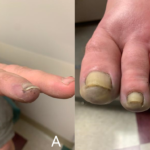I know this sounds like heresy for many readers. But I assure you, as a connoisseur of the physical exam, I strongly believe it’s central to our identity as physicians. We absolutely need to scrutinize patient history by correlating symptoms to objective signs of disease. And when done correctly, the physical exam can lead to new hypotheses worthy of further testing or, alternatively, avert needless and redundant testing. Just as important, patients deeply appreciate this old-school type of medicine, where individual attention is paid to each joint.
But these arguments do not wholly justify our current practice. We are no longer in the era of Osler and Laennec. In our age of evidence-based medicine, we ought to demand rigorous proof, even for the physical examination. We ought to dignify patients by treating them as human beings and not circus animals performing tricks for our curiosity and amusement. We need to weigh the risks, no matter how small, as well as the benefits whenever we are engaging patients directly.
On a larger scale, we are in dire need of higher-quality research into the diagnostic utility of these examination methods, even though the task is not particularly lucrative or glamorous.
Ultimately, the relevance of the physical examination depends on whether we apply the right test at the right time for the right patient. If we treat it perfunctorily as a ritual or gesture, then we take away its significance, and might as well save time and skip it entirely. In short, if we continue to force every one of our patients to stand on their tippy-toes, then we’re all going to end up falling flat on our faces.
Bharat Kumar, MD, is a second-year fellow at the University of Iowa pursuing a dual-certification pathway in rheumatology and allergy/immunology. Dr. Kumar has a special interest in medical education, journalism and ethics.



